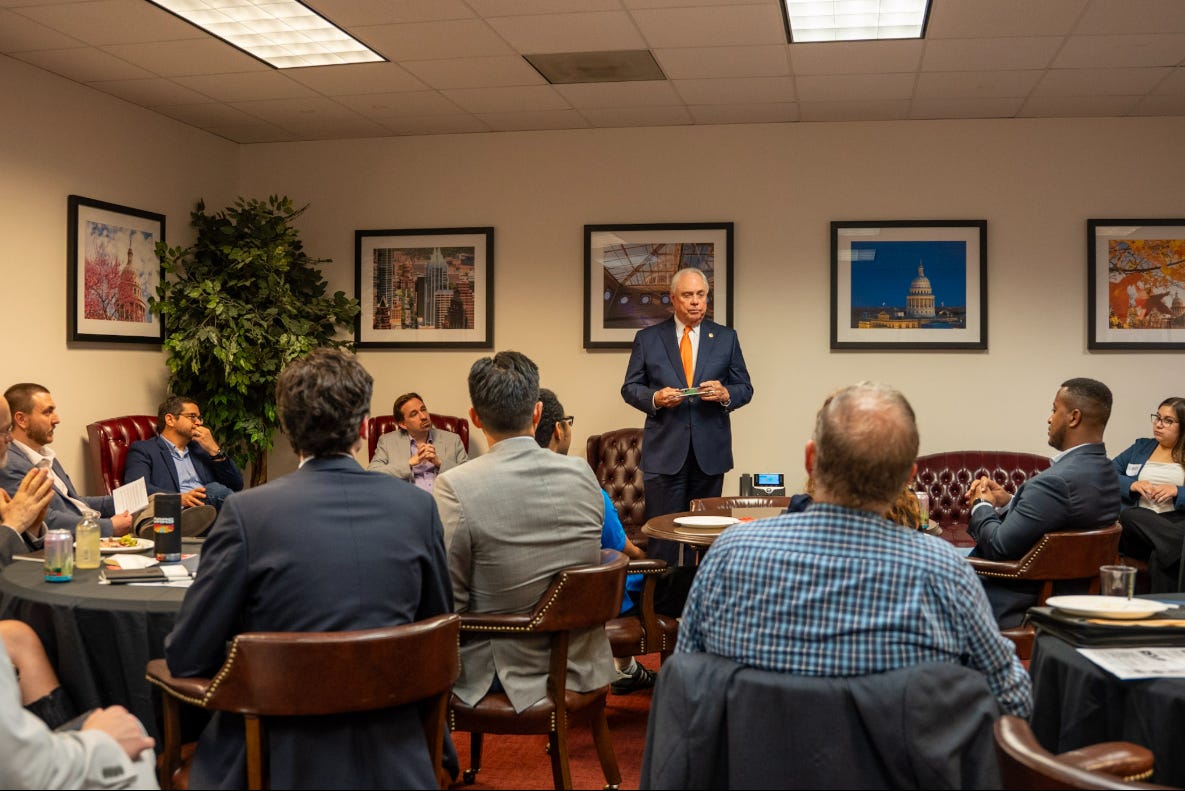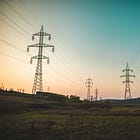On April 3, the American Conservation Coalition and the Abundance Institute co-hosted a conversation between Representative Drew Darby, energy market analyst Doug Lewin, and R Street’s Josiah Neeley about creating energy abundance in Texas. I played the moderator asking questions, but recording the conversation wasn’t possible. So, here are the highlights from the speakers.
Darby: Energy of all kinds matters to Texas’s future
Rep. Darby, chair of the House Committee on Energy Resources, highlighted what he sees as a false dilemma: the idea that energy policy must choose between renewables and fossil fuels. His work in the state legislature is devoted to keeping Texas a leader in oil and gas and renewables alike. Systems beat tools is my bumpersticker version of the refrain.
Lewin: Demand-side opportunities abound
emphasized the importance of meeting energy needs without tying one hand behind your back. In other words, supply and demand both matter. Demand-side resources—like energy efficiency, virtual power plants, and giving average customers a role in energy markets—are vital to keeping the grid reliable and affordable. The real opportunity is adding more people to the pool of electricity problem solvers. Customers with energy assets (batteries, solar, smart devices, and more in the future) can get in the game to support the entire system. The history of demand response is littered with practices that told customers to sweat it out in the summer or freeze in the winter. Today’s iterations, instead, pay customers for the value they bring to the grid. If we stop inefficiently centralizing the grid, we make the entire system more resilient.
Neeley: Unleash energy entrepreneurs
The extensive market opportunities for energy entrepreneurs was Josiah Neeley’s core point. The state’s competitive retail market enables experimentation that is impossible anywhere else in the country. After lamenting that there are too many thumbs on the scale for favored fuel sources, he pointed out that a competitive market gives customers options rather than playing favorites. It’s a strange world where we have new Oreo flavors every few weeks, but most states don’t let you choose anything about your power mix. That should change. As Josiah put it in a short essay recently:
Liberty also empowers consumers, which not only encourages lower prices but has driven companies to reduce the environmental impact of their products in recent years. And liberty allows the economy to adjust more easily to changes in the energy and economic landscape.
If you let them, people will build
At the heart of Josiah’s argument is an under-appreciated truth to economists—people respond to incentives. If you have a system that allows people to respond to the energy needs that they see, then they will find solutions. Whether policies are designed to let people find and capitalize on opportunities or whether they stifle entrepreneurship is the question!
Throughout the entire conversation, Texas’s edge in getting things done was the overarching theme. Why is OpenAI investing billions into energy and AI infrastructure in Texas when it could go anywhere? Because Texas offers what few other places do: a functional, flexible market. The premium service the state provides is that you just can.
And in a world that needs more energy, faster, that makes all the difference.






